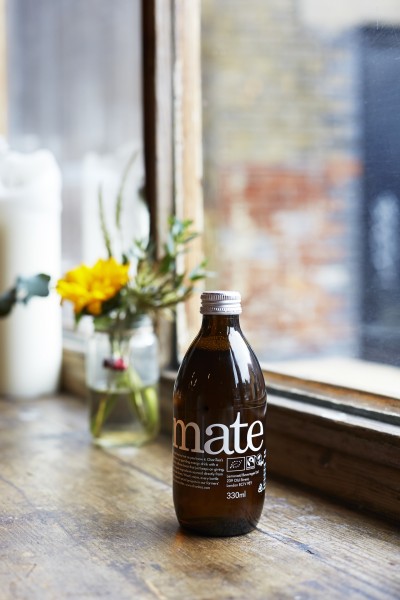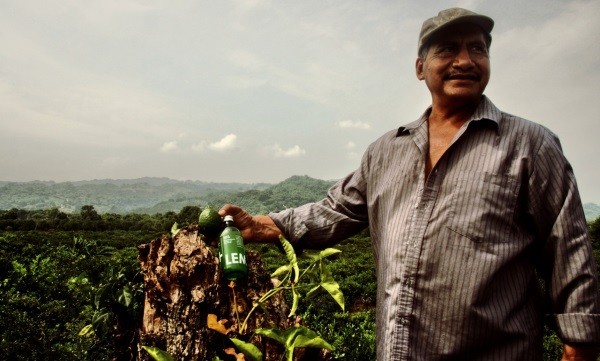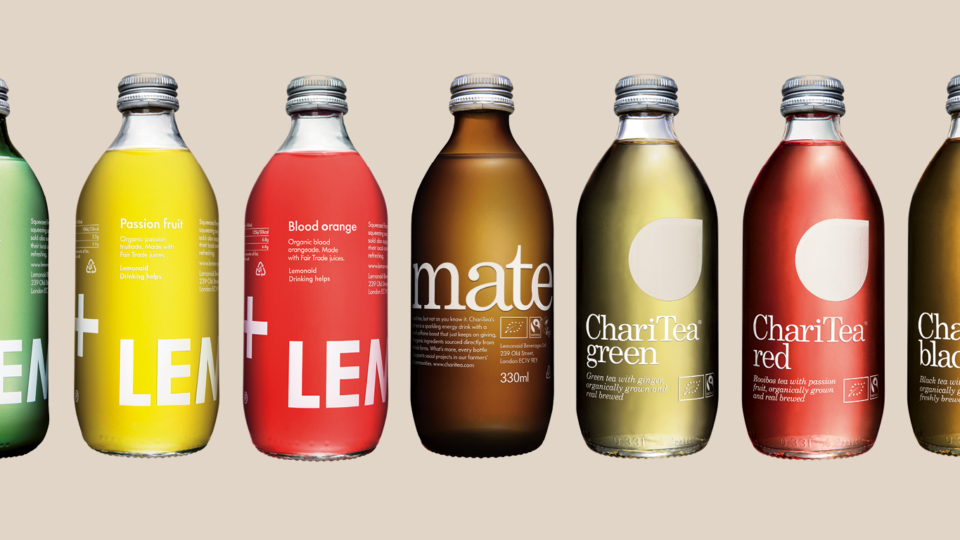Can you tell us about how Lemonaid and ChariTea were founded?
The Lemonaid and ChariTea project was founded with the aim to support smallholder farmers in economically underprivileged parts of the world. Being a development worker in Sri Lanka himself, our founder Paul realised that traditional foreign aid often did not reach the local communities it was originally set out to help. That’s when the idea emerged to come up with a product that engages rural farmer cooperatives in direct, fair trade, hence giving them an opportunity of participating on the world market whilst receiving a fair price for their produce. Since no other company was producing a truly tasteful fruit drink or iced tea at the time, Lemonaid and ChariTea was born.

Lemonaid and ChariTea have just surpassed £1 million for global development aid projects – what type of projects has this money gone towards so far?
We have set up a charitable organisation, the “Lemonaid and ChariTea e.V.”, which is funded through the sales from Lemonaid and ChariTea. We donate 5p per bottle sold towards the charity’s work in the farmers’ local communities. We shoulder our backpacks every year to visit our growers in their villages, spending time with them and their families. This way, we learn about the struggles and challenges they face and often come up with ideas for projects that fulfil real needs rather than trying to make plans from our offices far away.
We have provided our rooibos tea farmers in South Africa with solar panels for instance, since they are not connected to the national grid and were using dangerous and toxic petroleum lamps in the past. Most recently, we installed several large water tanks to collect rain water during periods of drought; running out of water was a problem they regularly face during summer months. We also support educational projects in Sri Lanka, Paraguay and Mexico. All projects aim to help the people to help themselves.
What’re the reasons behind the geographical locations of your projects?
We try to have as much impact as possible in our farmers’ communities, since they are the ones working the hardest for our drinks, so we think it’s only fair to give back. First and foremost by engaging them in fair trade and thus creating a long-term, self-sustaining and reliable stream of income for them. To broaden our reach, our social projects try include other members of the community as well, for instance a vocational school project in the Sri Lankan mountains where our green and black is grown. Children get a chance of learning a profession like carpentry or gain computer skills here, which is open to the entire community.
What’s the impact and importance of maintaining a direct relationship with the different farmers who cultivate the crops for Lemonaid and ChariTea?
Smallholder farmers frequently lack the power to negotiate fair prices for their produce. Unforeseen price fluctuations on the world market can quickly put them in a situation where they can’t produce sustainably anymore. By developing direct relationships with the farmers and working under Fairtrade guidelines, we guarantee a fair purchasing price that allows our farmers to make a decent living and plan for the future. Sourcing from single estates also guarantees the highest and most consistent quality which is important if you want to create a superior taste, compared to the mainstream blends you will usually find on the shelves.
What’s the vision for Lemonaid?
Lemonaid was never just about soft drinks. We started this project with the vision of turning the for-profit sector on its head. Being firm believers that businesses should not merely benefit their shareholders, we set out to prove that even a soft drink can be a successful means to fundraising by investing parts of our profits back into the growing regions. We’re very proud to have raised over £1,000,000 in the past seven years but with our Social Enterprise growing quickly and donations linked directly to sales, this is just the beginning. What started in a small kitchen in Hamburg with a group of three friends is becoming a global movement now. Which also surprises us sometimes. We suddenly see a global shift towards more ethical and healthier drinks and would like to offer more people around the world the chance of swapping their sugary sodas for a better drink that also does good.
What positive outcomes have you seen so far through your work in the different communities globally?
Fairtrade is seen by many primarily as a system of paying higher wages to the farmers, which is only one aspect to it. When travelling to Assam and Darjeeling in India, I was impressed to see that establishing democratic structures within the workforce by electing Fairtrade committees, often led to fundamental changes in the workers’ self-esteem and, in consequence, their role within their community. On many plantations, where workers have merely been regarded as means of production for generations, members of the community now talk at eye level with the landowner about their needs and demands – and realise that they have a voice that can be heard. Empowerment is also a crucial part of many of our own projects. Pupils in the agricultural school ‘San Juan’ in Paraguay learn the essentials of organic farming in order to make their own living; and the PEaCE project in Sri Lanka educates children about their rights, and the dangers of sexual exploitation. We believe that education and knowledge are key when working with communities in developing parts of the world.

You’ve worked on socially and environmentally conscious projects around the world, from Paraguay to South Africa and Germany – where next for Lemonaid and ChariTea?
We are about to launch a new range of products which include ingredients from Fairtrade farms all over the world. Over the past two years, we therefore travelled through Africa, Nepal and India on a quest to find the most ethical plantations, producing outstanding organic crops and being on the forefront of the Fairtrade movement. Working with so many new suppliers opens up a lot of exciting opportunities of finding and supporting local initiatives and NGOs that are not yet supported by global charities, where we can make a significant difference in people’s lives whilst granting more small farming communities access to selling globally on fair terms.


